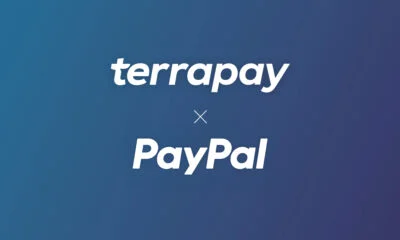News
Saudi-Based Mozn Uses AI To Detect Money Laundering & Fraud
The company combats a wide range of financial crimes using pattern recognition and advanced algorithms.

Saudi Arabia’s Mozn, an AI platform founded by Dr. Mohammed Alhussein, uses advanced artificial intelligence algorithms to detect and prevent financial crimes and increase compliance.
The company’s advanced platform is known as FOCAL. It can sift through masses of financial data using pattern recognition and other advanced techniques to spot fraud and money laundering in real time.
Dr. Alhussein developed the FOCAL platform by studying anti-money-laundering and anti-terrorism legislation and compliance and quickly realized that traditional (often manual) checks and safeguards were too slow to act.
Mozn’s AI technology uses name-matching algorithms uniquely optimized for the Arabic language and reconciles its findings against 1,300 international and regional sanctions. Meanwhile, the system’s anti-fraud functionality detects suspicious patterns by confirming payee identities against the records of destination accounts — a process that is said to reduce investigation times by up to 95%.
Also Read: A Guide To Digital Payment Methods In The Middle East
Although the platform was launched in Saudi Arabia, CEO Dr. Mohammed Alhussein recently announced plans to expand into the UAE, noting that the company’s long-term goal would be to develop operations further across the GCC. “The UAE has been making significant strides in enhancing its AML compliance and combating financial fraud, and Mozn entering UAE market will help accelerate these efforts,” Alhussein stated in a press release. “We are excited to begin this next chapter in Mozn’s growth journey as we enter the broader GCC market through our UAE office”.
News
Google Releases Veo 2 AI Video Tool To MENA Users
The state-of-the-art video generation model is now available in Gemini, offering realistic AI-generated videos with better physics, motion, and detail.

Starting today, users of Gemini Advanced in the MENA region — and globally — can tap into Veo 2, Google’s next-generation video model.
Originally unveiled in 2024, Veo 2 has now been fully integrated into Gemini, supporting multiple languages including Arabic and English. The rollout now brings Google’s most advanced video AI directly into the hands of everyday users.
Veo 2 builds on the foundations of its predecessor with a more sophisticated understanding of the physical world. It’s designed to produce high-fidelity video content with cinematic detail, realistic motion, and greater visual consistency across a wide range of subjects and styles. Whether recreating natural landscapes, human interactions, or stylized environments, the model is capable of interpreting and translating written prompts into eight-second 720p videos that feel almost handcrafted.
Users can generate content directly through the Gemini platform — either via the web or mobile apps. The experience is pretty straightforward: users enter a text-based prompt, and Veo 2 returns a video in 16:9 landscape format, delivered as an MP4 file. These aren’t just generic clips — they can reflect creative, abstract, or highly specific scenarios, making the tool especially useful for content creators, marketers, or anyone experimenting with visual storytelling.
Also Read: Getting Started With Google Gemini: A Beginner’s Guide
To ensure transparency, each video is embedded with SynthID — a digital watermark developed by Google’s DeepMind. The watermark is invisible to the human eye but persists across editing, compression, and sharing. It identifies the video as AI-generated, addressing concerns around misinformation and media authenticity.
While Veo 2 is still in its early phases of public rollout, the technology is part of a broader push by Google to democratize advanced AI tools. With text-to-image, code generation, and now video creation integrated into Gemini, Google is positioning the platform as a full-spectrum creative assistant.
Access to Veo 2 starts today and will continue expanding in the coming weeks. Interested users can try it out at gemini.google.com or through the Gemini app on Android and iOS.















